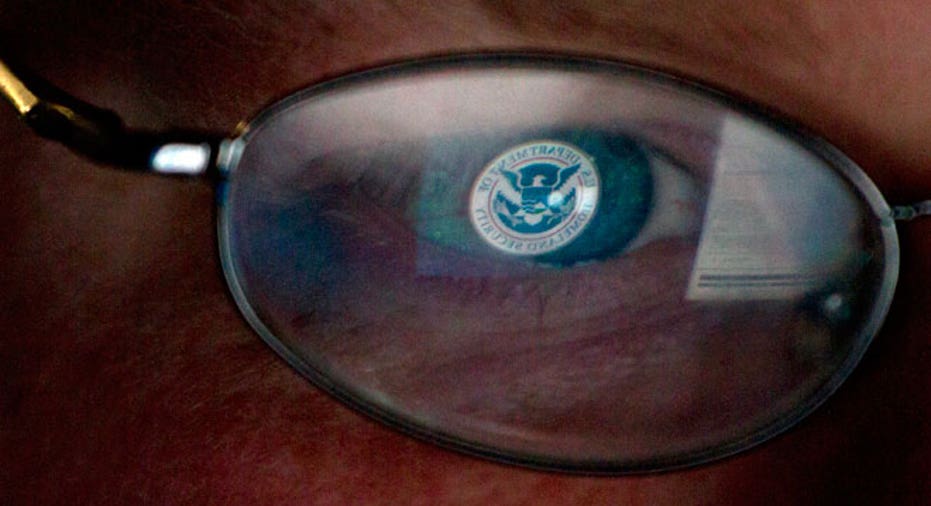Self-Employed? Why Your Identity Might Be at Risk

When you're self-employed, getting work depends heavily on how well you advertise yourself. This often means posting your personal information — full name, email address, phone number, geographic location, work history, etc. — on multiple websites and social media accounts.
Building an online personal brand as a freelancer, consultant or other self-employed professional is a great way to grow your business, but by putting yourself out there, you're inviting more than just prospective clients to find you. Between the personal details you can post on public websites and the sensitive banking and tax information you can transmit back and forth to your clients, you may become a target for hackers and cybercriminals.
"We don't control all of our data anymore," said Becky Frost,senior manager of consumer education for ProtectMyID, a service offered by credit reporting firm Experian. "As more and more of our data is online, we need to [know] how to protect what we can, and if your identity gets stolen, how to recover as quickly as you can."
Of course, it's not just self-employed workers who are at risk for identity theft. Many people in the digital age struggle to balance the necessity of online information-sharing with the protection of their sensitive data, said Will Pelgrin, president and CEO of the Center for Internet Security. But having your identity stolen as a self-employed worker can destroy not only your personal credit, but your entire livelihood, too.
"It really comes down to assessing your risk-tolerance level, and providing only the information you are comfortable having publicly available," Pelgrin told Business News Daily. "While we can never completely eliminate the risk when putting our information online, there are many things we can control, and our digital footprint is one of them."
Frost and Pelgrin offered the following tips to help the self-employed protect their identities and reduce their risk of becoming cybervictims.
Map and manage your digital footprint. Before you can reduce your digital footprint, you should know what it currently looks like, Pelgrin said. Using your name and other personal details, do a few searches on multiple search engines to find out where you're listed. Once you have an idea of the size of your digital footprint, you can start to clean it up by deleting inactive profiles and getting rid of any questionable photos and posts.
"Think before you post [and] be careful how you interact with others online," Pelgrin said. "Be selective about which venues you participate in. If you regularly contribute to blogs or message boards, consider how others might interpret your statements. Be cautious about referencing where you work, as this might be used for social engineering and other scams."
Take extra precautions with sensitive data. Freelancers are typically required to provide their banking information and fill out tax forms with their Social Security number in order to get paid. Frost recommended limiting the number of documents that contain this sensitive information, and ensuring that any documents that do contain it are secure.
"If you keep [business] information on your smartphone or tablet, password-protect those devices, especially if you have invoices stored in cloud-based [systems]," Frost said.
Pelgrin noted that any emailed invoices or forms containing sensitive details should be encrypted, and that any computer or devices you use for financial transactions have up-to-date operating systems, software patches and security features.
Check privacy settings and policies. By creating social media accounts and other online profiles, you're relying on third-party systems to protect your personal data. It's important to make sure you're clear on both the website's privacy policies and your individual privacy settings on those accounts.
"Configure privacy settings to allow only those people you trust to have access to the information you post, and your profile," Pelgrin said. "[Also,] review a site's privacy policy. Some sites may share information, such as email addresses or user preferences, with other parties. If a site's privacy policy is vague or does not properly protect your information, do not use the site."
Monitor your accounts and report any suspicious activity. The first sign of identity theft is unusual charges on your bank or credit cards. Keeping a close eye on all of your financial accounts and your credit reports are the first line of defense when it comes to spotting fraud. Frost noted that a less obvious sign of identity theft is if a debt collection agency contacts you about an account you don't recognize, which could mean that a person created a false account using your personal details.
"Don't ignore [suspicious activity]," Frost said. "Contact the card issuer [and] credit-reporting agency and ask to speak to the fraud department. Monitor your statements and remain vigilant."
Originally published on Business News Daily.



















